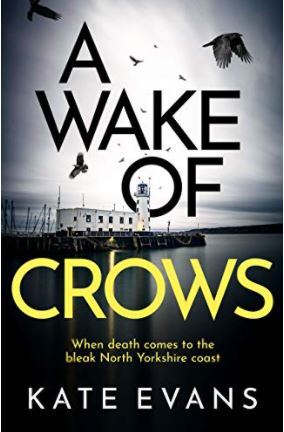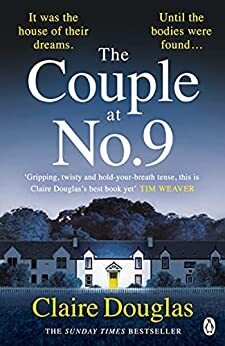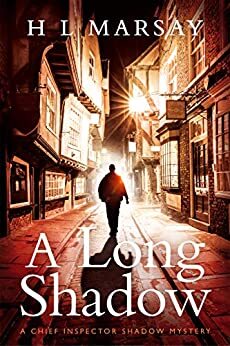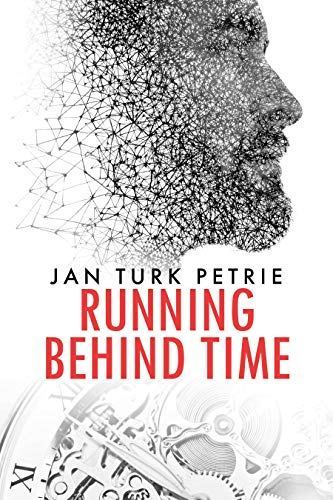R.J. Lynch's Blog, page 4
July 9, 2022
Lake of Echoes by Liza Perrat

Can it really be two years since I reviewed The Lost Blackbird by Liza Perrat? Yes, it seems it is. But the two years were worth it because they gave her time to write Lake of Echoes. When you find a first class writer who is new to you, you know that the only thing you can expect is improvement. The next book will be better, and the one after that will be better still. And so it has proved. Lake of Echoes, like The Lost Blackbird, is historical fiction. What I want from historical fiction is that the writer should not just show me what happened sometime in the past but should make me feel I’m there and I understand why. Liza Perrat does that. Years ago, on one of many cycling holidays in la France profonde, I found myself in a village deep in the French countryside and with a strong sense that in such places no-one looks at you – but everyone knows what you do. At the time, it made me shiver. I had that sense again with this book. The author understands the people she writes about. She knows the currents in small French villages. She can get into the minds, not just of “normal” people (whatever they are) but also of the slightly crazed and the totally barmy. And she presents all this in a harrowing tale of abducted children. Every parent’s nightmare – something that rips apart not just communities but also marriages. Something that promotes gossip and spite as well as the desire to help. But never at any point do you feel any wish to stop reading. It’s a tour de force by an Australian woman who has lived in France for twenty years, raised a family there, and knows the place backwards. She is also one of the English language’s most accomplished writers. Strongly recommended.
February 7, 2022
Still Life with a Vengeance by Jan Turk Petrie
 http://bookgoodies.com/a/B09HV2J4MH
http://bookgoodies.com/a/B09HV2J4MHIt seems like so long ago that I first read The Old Boys by William Trevor. And, in fact, it IS a long time ago – fifty-seven years, in fact. Where have they gone? I became a lifelong fan of William Trevor; what particularly drew me to his books was his ability to show us a world that looked just like the one we know – and then, with one deft feat of great writing, to remove the ground we think we stand on and show us the abyss below. He revealed that life is not just strange but unknowable. I’ve become a fan of Jan Turk Petrie for many of the same reasons. Her writing reminds me of Trevor’s – cool, distant but at the same time deeply involved with the characters and the reader and committed to writing as an art.
Still Life with a Vengeance is exactly the kind of story William Trevor might have told. It’s like watching interlinking lives play themselves out on stage. Each time we think we understand what’s going on, Petrie makes a slight adjustment to the scenery or the dialogue and a whole different set of questions emerges. The book is also very timely in the way it looks at how rumour can lead to a career and, indeed, a person being cancelled. The thing I had to accept when I read William Trevor was that, like it or not, this world he shows me is my world – the one I live in. In Still Life with a Vengeance, Jan Turk Petrie shows exactly the same skill.
Five stars. Read it. You may not be the same again.
December 14, 2021
A Wake of Crows by Kate Evans
 http://bookgoodies.com/a/B08JX7YKVJ
http://bookgoodies.com/a/B08JX7YKVJWay back at the beginning of 2015, I reviewed a crime book, The Art of the Imperfect. The author, Kate Evans, was unknown to me, but she made a huge impression. In my review, I recalled the first time I’d come across Hilary Mantel (in 1985 with her book, Every Day is Mother’s Day. I talked about the huge impression that book had made on me, and how I’d been a Mantel follower ever since. I said, “Thirty years ago, I recognised Hilary Mantel as a name to watch. Today I give you Kate Evans as another.”
Well, it’s been a while, but now Kate Evans has proved me right. This year, Constable brought out her new crime book, A Wake of Crows. It’s been worth the wait. I often read reviews saying that a book contains many layers and when I read the book itself I usually find myself wondering what the reviewer meant. But A Wake of Crows is a book that reveals itself on many levels. It’s a straightforward police procedural. It’s a study of a complicated life that begins in East Germany when it’s still a Communist state and its inhabitants are sorely oppressed and ends, of all places, in Scarborough in North Yorkshire. And it’s a great many other things, too, between those extremes.
Kate Evans has the one gift without which writers cannot succeed. From the moment you start reading her book, you’re in the story, you want to know what happens, and you can’t stop reading until you do. The characters are sometimes odd, but they are always real, believable and multi-faceted. The same goes for the plot with its many turns and its slow unveiling of the depths of the story. Six years ago, I called Kate Evans a name to watch. I was right. Whatever else you do between now and Christmas, read this book.
October 17, 2021
The Couple at No 9 by Claire Douglas
 Starts brilliantly, but fades a little towards the end
Starts brilliantly, but fades a little towards the endI’ve given this four stars; really, that should probably be 3½. For at least two thirds of the book (and it isn’t short) I was gripped. As the author moved from twist to twist, I didn’t want to put the book down. Sadly, it’s a little like the party guest who you are delighted to see and who makes your party go as your parties have rarely done before – but then fails to realise that the time to go home past a little while ago. It is, in other words, too long. It takes too many pages to unravel the final mystery. Disappointing, but I shall certainly want to read Claire Douglas’s next book. Anyone who can write this well is only going to get better.
October 16, 2021
A Long Shadow by H L Marsay

Every serious reader from time to time picks up (or, in this case, downloads) books they haven’t heard of by writers they also haven’t heard of. That’s how I came to read this book. Quite often – I might almost say usually – the experience is a disappointment, but once in a while you realise that you’ve happened on something exceptional. And that is how I feel about A Long Shadow.
I chose the book in the first place because it was set in York, a city I love. What I found was that the author uses the place as an extra character. You can feel York in this book. In fact, you can almost talk to it. And that’s something it has in common with the other characters because they are real and believable. By the end, you feel that you know them. The motivations are genuine, so are the disagreements both major and petty, and the denouement when it comes seems a natural step onwards from the point we’ve already reached.
If you like crime fiction, I recommend this very strongly. You can find it here.
August 22, 2021
Police Procedurals. A Killer Makes Himself Known
I’m writing a series of police procedurals under the new pen-name, JJ Sullivan. Book 1, Drawn to Murder, is already complete and when I went to bed last night I was 17,000 words into Book 2, Westwood, but I don’t plan to publish until I have three books ready to go. Most people who read mysteries probably read them to find out who the killer is, and why. It may come as a surprise to readers who...
A Killer Makes Himself Known
I’m writing a series of police procedurals under the new pen-name, JJ Sullivan. Book 1, Drawn to Murder, is already complete and when I went to bed last night I was 17,000 words into Book 2, Westwood, but I don’t plan to publish until I have three books ready to go.
Most people who read mysteries probably read them to find out who the killer is, and why. It may come as a surprise to readers who are not themselves writers to find out that that’s also why I write them. I want to know who the killer is, and what motivates him or her.
I say, “him or her,” because Drawn to Murder features two serial killers working together – and they are both women. I must have written 15,000 words of that book before I realised that the male serial killers I was writing about couldn’t have done what they were supposed to have done and the killers must be female.
What that tells you is that I’m a pantser and not a plotter. When I start writing the book, I know very little about what’s going to happen. Westwood starts like this:
Jensen Bartholomew was Zooming with his brother, Cedric. A stranger sharing Jensen’s screen would have taken it that Cedric was not doing too well – the room he sat in was poorly furnished and Cedric himself looked as though his next full meal would be his first for some time. Cedric had just finished the first ten minutes of a series of moans about his predicament that experience told Jensen was likely to last for some time when the door behind him opened and a figure entered covered from head to foot in a black gown and wearing a Guy Fawkes mask. As Jensen watched, the figure wrapped something around Cedric’s neck and pulled it tight. Cedric half rose from his chair. His hands struggled to free himself and his feet were stamping a furious tattoo on the worn lino beneath them, but the figure did not relent. In less than a minute, Cedric had sunk out of sight, to all appearances dead. The figure leaned in close to the screen and pointed through it at Jensen. In a deep and gravelly voice, it said, ‘You’re next.’ Then the screen went as dead as Cedric.
And that’s all I had. I didn’t know who killed Cedric, I didn’t know why he needed to die – I knew almost nothing. But I did have the confidence that comes from having written a large number of books, most of them published under other people’s names, to know that the characters would help me out. The most extreme case of that was when I was writing Zappa’s Mam’s a Slapper. I wrote the first sentence:
All I’d said was, I wouldn’t mind seeing her in her knickers.
I didn’t know where that sentence would take me – but Billy, the lead character, extracted himself from the story and stood over me as I wrote. “Poppy wouldn’t have said that.” “It didn’t happen like that, it happened like this.” “Don’t forget to tell them about the anger management.” And so it went until the book was complete. You could say Billy McErlane wrote that book and not me – and Billy McErlane doesn’t exist.
Something very similar happened today. With a quarter of Westwood written, I still had no idea who had been doing the killing (the body count by then was three) and nor did I know why. And then, at 4 o’clock this morning while I was still in bed, the killer announced himself. ‘It’s me,’ he said. ‘And this is why I’m doing it.’ He’s been in the book from the start and he hadn’t for a single moment been a suspect in my mind – but as soon as he identified himself, it made complete sense.
I’ve spent the day first in rewriting work already done and then in adding 3400 words to take account of what I know now and didn’t know before. This is the stage at which I know for certain that the book will be finished.
When it is, you’ll be the first to know.
March 13, 2021
Running Behind Time by Jan Turk Petrie

I’ve expressed my admiration for Jan Turk Petrie as a writer in the past. She has a very wide range: Dystopian Nordic Noir (I’m not sure, but I think she may have invented this genre); historical fiction; contemporary fiction – and she’s done a remarkable job in all of them. And now: Time Slip.
The idea of Time Slip is so inherently at odds with everything we know about Time (it moves in only one direction) that achieving a willing suspension of disbelief requires a very high standard of authorship. And that’s exactly what you get here. The genre shares with all other forms of fiction a need for the characters to be believable and to arouse our interest (we don’t have to like them). Running Behind Time delivers that, too.
And then there are the book’s individual pleasures. Chief, for me, was that I KNEW the secret the author was concealing about her two main characters and I was almost at the end of the book before I discovered how wrong I had been. That ability to lead the reader by the nose is one of the most valuable an author can have, and it’s – not rare, exactly, but fairly unusual.
When I’m reviewing a book, I look hard for the weakness that will allow me to reduce the rating from five stars to four. I didn’t find one here.
September 2, 2020
The Truth in a Lie by Jan Turk Petrie
Jan Turk Petrie has quietly made her way into my list of favourite authors. Reading this latest of her novels, I found myself thinking of Deborah Moggach and there isn’t, for me, any greater compliment than that. This is the first Petrie book with a contemporary setting – everything else has been historical or, as in the case of the Eldísvík series, set in the future. The Truth in a Lie follows a path that has been trodden elsewhere – in fact, it’s one of the staples of fiction – where what people do is influenced by something in their past about which we receive plenty of hints, but which only becomes clear in the final stages. What marked this book out for me was the sheer skill with which what could have been a hackneyed tale is told. Jan Turk Petrie is a writer at the top of her game and the only further comment I have to make is: Read This Book.
August 9, 2020
The Lost Blackbird by Liza Perrat
I’ll willingly admit to an interest here: Liza Perrat is an Australian writer married to a Frenchman and living in France, and I’m a fan. What you get with Liza is an Australian straightforwardness that draws you into her books and says: ‘This is real life as lived by real people.’ And it is. Real people aren’t always nice people, and Liza does not shy away from that. She shows you what people do and why they do it and she leaves the judging to you.
The Lost Blackbird is the story of two young English sisters, Lucy and Charlotte known as Charly, who lose their home and their mother after their father’s death. You see him die and you think you know the whole story. You may be in for a surprise, but there are no spoilers in my reviews. They are taken into a Catholic orphanage in London and from there they sail to Australia to start a new life. The new life is not what they were led to believe it would be.
It would be easy at this distance to see The Lost Blackbird as an indictment of the Australian authorities – but that would be only part of the story. What it really is is an indictment of relationships between adults and children. At the time the story is set ( the early 1960s, so we’re not talking about the distant past) children still had the same rights in practice as children in the days of Charles Dickens. No-one listens to Lucy and Charly – the people who should be making sure their lives are okay are too busy taking note of the views of adults who, if we’re frank, don’t give a toss about the girls; they are happy to pay lip service to any set of decent values you might choose, but lip service is all it is. Have things improved today? I’m really not sure that we can claim that.
In the hands of a less than stellar writer, this book could be very heavy going. The fact that it isn’t is the product of Liza Perrat’s great skill as a writer. It will make you angry that adults could treat the vulnerable as they do here, but you won’t want to stop reading. Recommended without reservation.



